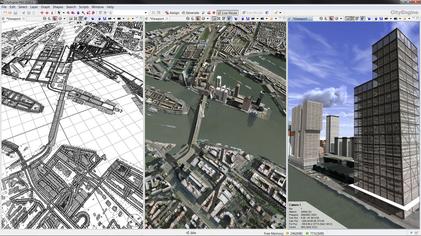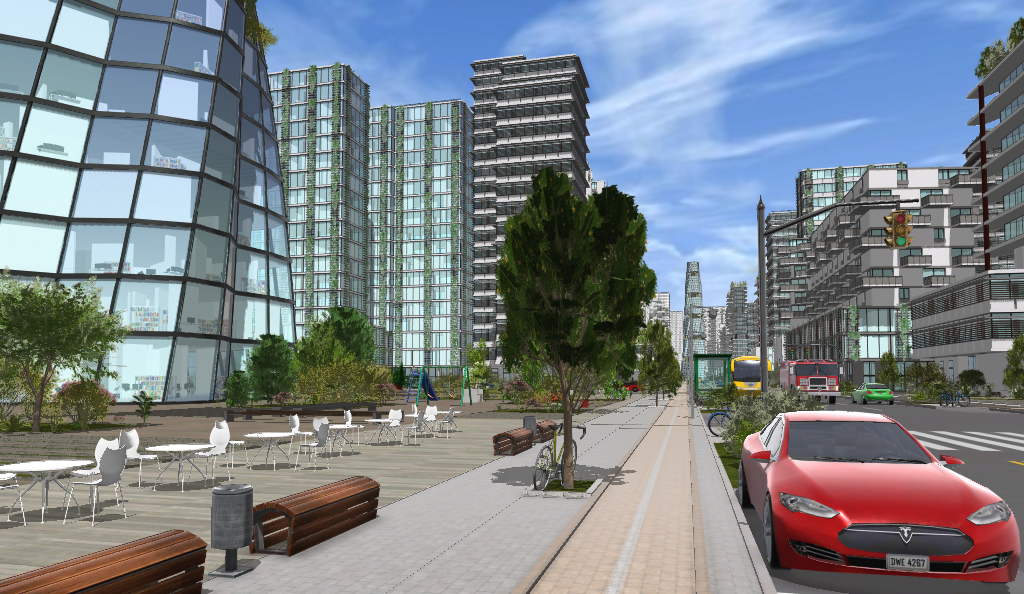
Cityengine Cost
I am an aspiring Architect and Urban Designer looking for an exciting opportunity to apply my talents at a forward-thinking multidisciplinary firm. I made it my mission to have a strong diversity in academic and professional experiences. By 2017, I graduated from the University at Buffalo. CityEngine is the advanced 3D city design application for creating, editing and sharing digital 3D building models and massive urban environments. Download your free 30-day trial today. ArcGIS CityEngine. Advanced 3D city design software. CityEngine is advanced 3D modelling software for creating huge, interactive and immersive urban environments in less time than traditional modelling techniques. The cities you create using CityEngine can be based on real-world GIS data or showcase a fictional city of the past, present or future. Get reviews, hours, directions, coupons and more for Motor City Engine. Search for other Diesel Engines on The Real Yellow Pages®. Create list index from values. Hi everyone, I have something I can't wrap my head around. The core model is not created from CityEngine, but is an shapefile import from a CAD system, so it's presplit. So I have all the floors split out before going into CityEngine and I want to create a floor index, the lowest floor index = 0 and then going up.

| Label | Explanation | Data Type |
Input point, polygon, or multipatch features. Input features can be procedurally symbolized feature layers. Field mapping (attribute-driven symbol properties) will be honored. | Feature Layer | |
Rule Package | The CityEngine rule package (*.rpk) file containing CGA rule information and assets. The rule annotated with @StartRule in the CityEngine rule package (.rpk) file should be annotated @InPoint for a rule package intended for point features, @InPolygon for a rule package intended for polygon features, or @InMesh for a rule package intended for multipatch features. If the @StartRule is not annotated with @InPoint, @InPolygon, or @InMesh, the feature type will be assumed to be polygon. | File |
The output feature class containing multipatch features with CGA rules applied. A field named OriginalOID is added to the output feature class(es) to contain the ObjectID of the input feature from which each output feature has been generated. | Feature Class | |
Include Existing Fields | Controls whether the output feature class inherits the attribute fields of the input feature class.
| Boolean |
Include Reports | Depending on how the rule package has been authored, it may contain logic that generates one or more reports as the models are created. These reports can hold a wide variety of information about the features. An example is a rule package that reports the number of windows generated for each building model. This parameter is ignored if the rule package does not contain logic to generate reports.
| Boolean |
Export Leaf Shapes | CityEngine rule packages construct content by generating component pieces and merging them together into a single 3D object. However, it is also possible to store these components, or leaf shapes, as separate features. This option can be especially important for running analytical operations against subelements of a 3D object, such as the windows of a building. This parameter determines whether each input feature is one of the following:
For example, a rule may generate seamless building models from input polygon footprints, or alternatively, it could create separate features for each apartment face, including an outward-facing panel, a representative center point, and lines showing the borders. In this example, the apartment panels, center points, and outlines are all considered leaf shapes.
| Boolean |


Cityengine Web Viewer
Derived Output
| Label | Explanation | Data Type |
| Output Point Features | When leaf shapes are generated, an output point feature class is created in the same location as the primary output multipatch feature class. | Feature Class |
| Output Line Features | When leaf shapes are generated, an output polyline feature class is created in the same location as the primary output multipatch feature class. | Feature Class |
| Output Multipoint Features | When leaf shapes are generated, an output polygon feature class is created in the same location as the primary output multipatch feature class. | Feature Class |
Comments are closed.